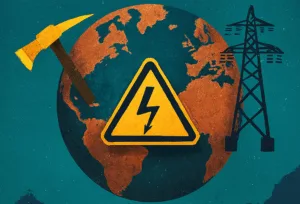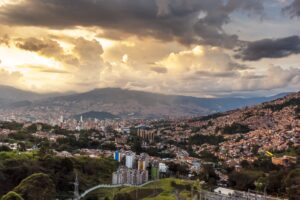I write this column from Oslo, where I’m currently sharing a classroom with 36 classmates from 18 different nationalities. While our backgrounds are diverse, one common thread unites us: energy is a matter of concern in each of our home countries, and none of us holds the final answer to the energy transition.
The first and most striking conclusion from this experience is the global irrelevance of Colombia in the energy system. Although back home energy has (rightfully) become a central part of public debate, the challenge here has been explaining why Colombia even belongs in this conversation.
The second realization is about the reality of the transition. Before 2022, the energy conversation was heavily tilted toward the transition corner of the energy trilemma—often at the expense of energy security and affordable, reliable supply. Now, the main question from developed countries is:
How do we rebalance the triangle?
To paraphrase the World Energy Council, the energy trilemma refers to the conflicting priorities governments face when trying to pursue three simultaneous goals: sustainability (transition), security, and affordability. And there’s no doubt: today, energy security has become the most urgent challenge for many countries.
The war in Ukraine reminded the world just how fragile the global energy system is—and how essential it is for national security. This explains the backpedaling we’re seeing in countries like Germany, which is reactivating coal plants while renewable projects are pressured by rising energy costs.
Priorities are clashing. With Russian gas no longer flowing at past levels to Europe, it has become difficult to maintain the energy transition model that some countries had previously promoted with a certain green moral superiority. What that model really implied was:
“Fossil fuels? Yes—but not produced here.”
This is why it’s essential to understand that each country’s energy reality is different. There’s no one-size-fits-all kit to purchase from developed countries or multilateral organizations. Quite the opposite—we must understand each national context, and realize how dangerous generalizations can be. That’s why many students from African countries question the pressure to adopt a “Europeanized” transition model.
The question they raise is clear:
Why copy a model from countries that haven’t even solved their own trilemma—and who don’t understand the realities of developing nations?
The dilemma of energy policy lies in how to navigate the energy trilemma, how to contextualize it, and how to design policies that truly balance its three corners. The transition and decarbonization are important and must move forward, but in countries like Colombia, the focus must be on poverty reduction and social development.
An imbalanced trilemma could become a serious threat to achieving those goals.
Carolina Rojas Gómez
Student, Executive Master of Management in Energy
BI Norwegian Business School


